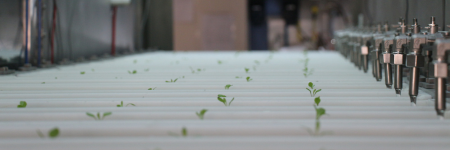'Un oeil sur demain': how to survive in a hostile environment like Mars?

Surviving on Mars: zoom on several projects
Thanks to Belgian TV RTBF for this article and TV report mentioning the MELiSSA Project.
Mars Desert Research Station - The Mars Society in Utah
For nearly 20 years, The American Mars Society's Mars base has been welcoming young space exploration fans.
This is the case for young Belgians. Eight UCLouvain students between the ages of 20 and 25 have just spent two weeks in the Utah desert in the United States.
Soon, a new Mars base at the Euro Space Center
It is a real challenge for the inclusive architects of Bureau Assar, to imagine the first Martian base in Belgium which will soon be installed at the Euro Space Center in Transinne, in the province of Luxembourg. The Base must be able to be assembled quickly to offer immediate protection to the astronauts.
Recycling techniques at the MELiSSA Pilot Plant in Barcelona
An astronaut consumes nearly 5 kg per day in the form of oxygen, food, and water. At Universitat Autònoma de Barcelona, in the MELiSSA Pilot Plant, scientists have installed a series of bioreactors in which they hope to be able to recycle everything.
The idea is that food eaten by astronauts will produce waste, which will then be recycled in reactors powered by specific bacteria which will produce drinking water, oxygen, and nutrients.
It is, therefore, a closed loop, these bacteria absorb CO2 and degrade waste to make nutrients, O2 to breathe, and especially water for plants and humans.
Learn more here (article in French).
Credit article: Pascale Bollekens.